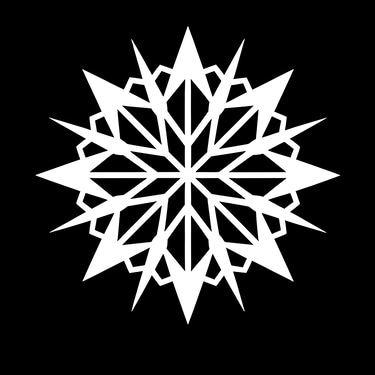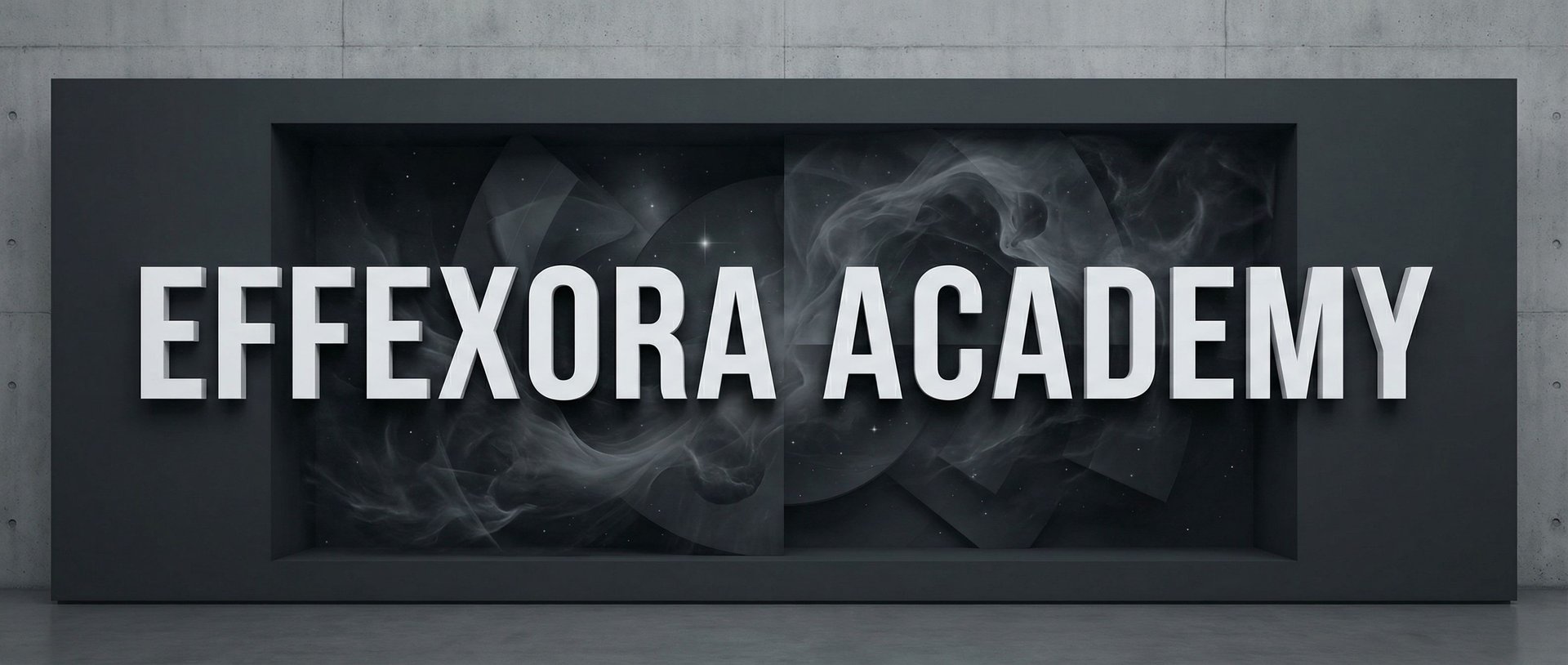
Why Bliss Isn't Found in the Light? About the Endless Loops of Becomingness and the Revival of Feminine Deities
The great misconception about the darkness had its impact on centuries of missing the point in human evolution. We met the world with an already dismissed understanding of death and darkness, making it the source of evil, thus disowning our own shadow parts, bringing many disasters through that self-rejection. This post is "putting some light" on that aspect of spiritual growth and draws from my own interpretation of unwanted female deities, as they hold valuable teachings about the nature of existence and corners of our psyche with a much greater amount of potential than the sanitized versions of "love, light, and survive."
SHADOW WORKAWAKENING TO THE TRUTHHEAL THE HEALER
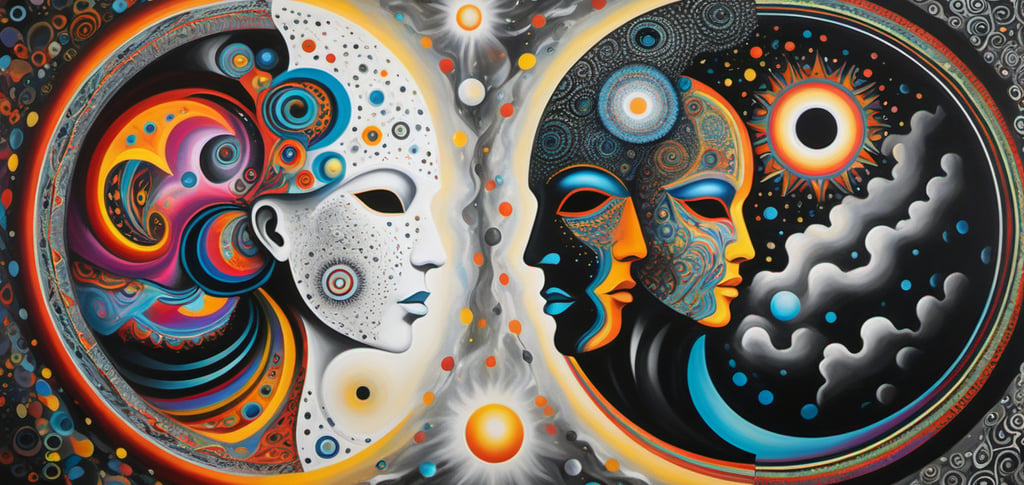

Do words like darkness, destruction, chaos, death, or weakness make you feel uncomfortable? Do they trigger an instinctive need to push them away, to keep your distance, as if they have no place in your life, your energy field, or your sense of reality? Maybe you catch yourself feeling uneasy, thinking that these are not thoughts someone on a spiritual path should have. So you turn away, try to ignore them, or push them out of your mind as quickly as possible, as though having these thoughts somehow discolour your sacred glow-up. You search desperately for something to brighten your path – chasing the light, the bliss, the love – polished to such an extreme that it leaves you completely blinded, wandering around with zero clue about the reality you’re actually walking through.
And what about your past? Have you ever looked back on your life and felt that something you lived through or a choice you made doesn’t fit into the version of yourself you are NOW, and therefore you resist the desire to share with the world who you have become? Maybe there’s a chapter of your story that feels so far removed from your idea of “spirituality” that you’d rather bury it. Like a shadow on your timeline, a flawed, awkward piece of you – your own ugly duckling. And the idea of sharing it, even hinting at it, feels like exposing a crack in the carefully built image of someone who’s only following the.. unconditional self-deception.
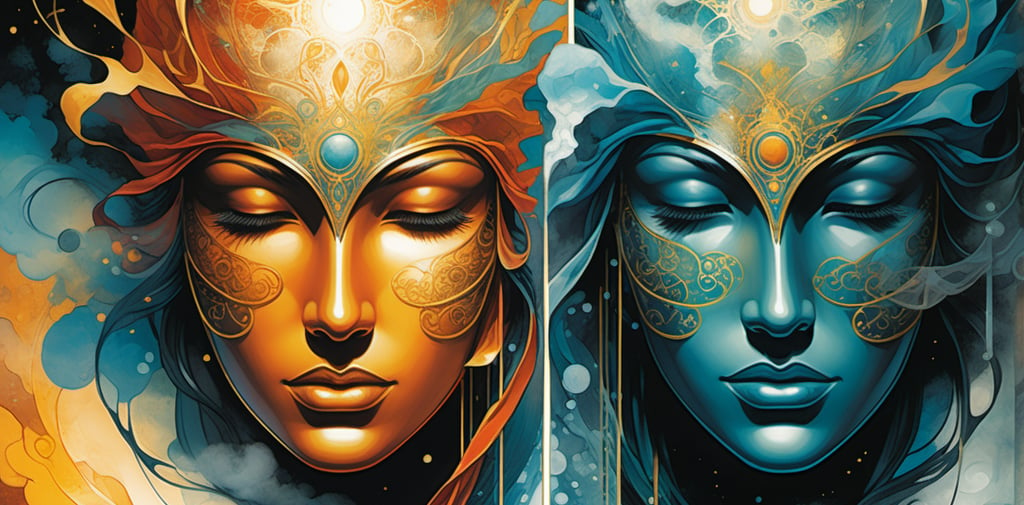

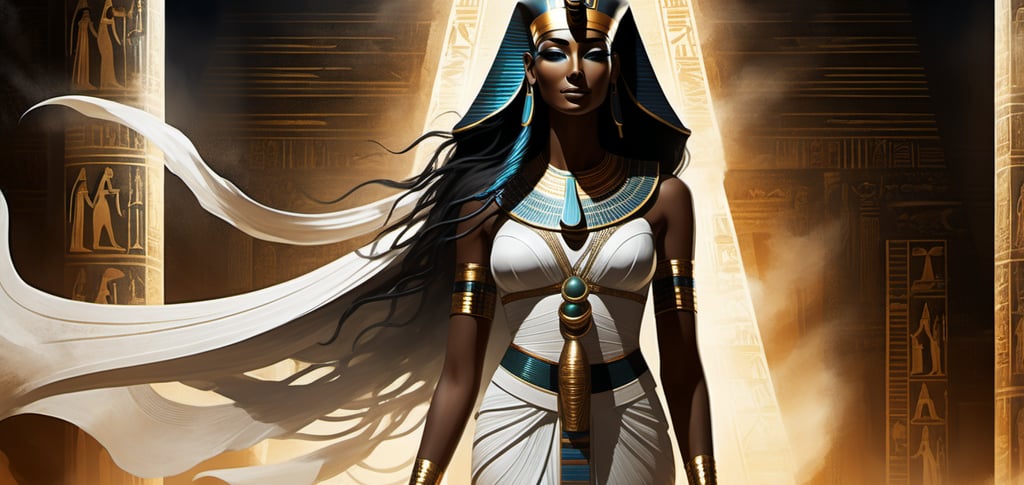

Seeker, Seek Within. Teacher, Teach Yourself
What if this so-called "ugly duckling" isn’t something to hide, but the very thing that will one day reveal the full beauty of your metamorphosis?
When you choose to venture into the dark corners of human experience, you’re still following the light. Even in the shadows, when you're entering the unknown lands of your psyche, there is a light – a potential you can reach, that is available only there.
You achieve this through the transmutation of those experiences, turning the darkest moments into a radiant source of illumination. This light outshines anything you’ve ever seen and known about yourself – a brilliance born from the bravery and resilience, unlike any light encountered in easier times of the illusionary sense of security.
Without the shadow parts, the previously rejected aspects, and the unhealed fragments, we wouldn’t have anything to trigger and fuel our further evolution. There would be nothing to heal, nothing to work on, and no reason to look for what is beyond the veil. Many seekers within the spiritual community have heartfelt ambitions and desires – they feel called to share something about themselves, their reflections, or their experiences. Some feel drawn to the roles of healer or teacher.
Spiritual teachers who deny and hide their negativity, vulnerability, or the messy, imperfect sides of being human often do so out of fear that showing these qualities could ruin the image of spiritual purity they feel they must maintain. This misconception, however, is all too common. The belief that spiritual growth or teaching demands the suppression of our shadow selves is not only mistaken and counterproductive, but ultimately self-defeating. True guidance toward wholeness can only come through acknowledging and owning these parts of ourselves – how else can we authentically lead others on their path to self-acceptance and integrity?
This is a kind of denial that creates a separate abyss altogether – one where the teacher becomes disconnected, not only from their students but also from their own humanity. True spiritual growth isn’t about pretending to be perfect, but about integrating the light and the dark, the healed and the unhealed, and showing others that this process is what makes us whole. Lack of authenticity turns teaching and guidance into performance. And yet, that’s a topic for another time.
Devil in Paradise or Paradise in the Devil?
What is the purpose of being part of a community or contributing to the collective life of its members? It’s so we can do this inner work together.
Through the lens of judgment, hatred, finger-pointing, injustice, traumatic relationships, and societal conditioning, we often fail to realize that we are not meant to be perfect here on Earth. We are not supposed to be pure and healed under each angle. Our soul and spirit are already pure, perfect, and complete – they always have been and always will be.
Incarnating here isn’t about reaching some level of perfection or attaining the highest consciousness. While it could be technically possible, there’s no reason for it to happen. The soul often chooses to experience the deep, dark corners of human existence. That’s what it consciously came here to do.
There’s nothing harmful in recognizing and owning the previously unwanted fragments of ourselves. Those parts for you today might serve as the nest of projections, firing off each time a pattern is triggered. In the past, many of us have been treated without respect, had our boundaries crossed intentionally, been manipulated, laughed at, experienced self-sabotage. We’ve dealt with obsessive tendencies, addictions, and perhaps even failed to treat others with dignity at times.
SO WHAT?
What does any of that change about the person you are today?
If you choose to share a part of your story, you accomplish two things simultaneously. First, you release the emotional tension that has been pushing you out of your comfort zone repeatedly. If you had that willingness that you would like to share your story, you won't be able to bypass it forever hoping that it will disappear at some point, so you don't have to leave your shell. And second, you allow yourself to be authentic, giving others the chance to know and accept you for who you truly are, and giving them a real treasure, an understanding, a support, a tool to solve their own puzzles.
You give something of the highest form of service to others, you share your path, and people who find something mutual, some similar challenge, will feel closer to their authenticity. These might be the exact words they need. For sure you know that feeling when you watch some spiritual content and you recognize the similar challenge, struggle, distress, and it often is the starting point of one's liberation from their own self-made chains. And oftentimes you wouldn't even know when people find what you shared, even though it brought rays of hope.
For the creator, the most important part is facing the fear of sharing something vulnerable in public. And when you finally rise above that fear, you realize the scariest thing wasn’t the sharing – it was the fear itself. But when the unknown becomes known, sharing something personal becomes a meaningful act, done first and foremost for yourself. On the path of spiritual evolution, sharing becomes a natural extension of your self-discovery. You can do it in any way or form that resonates with you, that is natural for you, that allows you to engage passionately in the creative process. As you uncover truths about yourself – truths born from facing and integrating both your light and shadows – you share them authentically. This process brings you gratitude, joy, humility and detachment. And perhaps, along the way, you come to appreciate the strange, beautiful, and messy experience of being human.
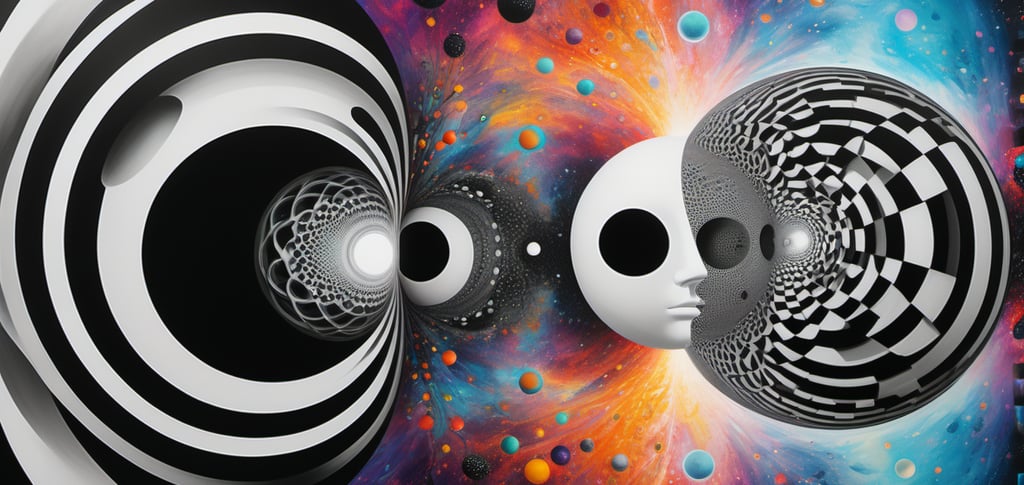

Stop Self-Deceiving and Own Your Shadows Instead of Disowning Them
The value of sharing is nearly impossible to explain because it’s something you have to live through to understand. It’s not about achieving a goal – reaching people, perfecting your message, or seeking approval. It’s about engaging with the process itself: finding how to express what’s inside you, experimenting with new ways to communicate your feelings, and discovering your voice along the way. The real treasure lies in this process– reflecting on your thoughts, shaping them into something life-altering, and offering them in a way that others can relate to. Reaching the destination has its great outcomes, yes, but the true gift lies in everything that happens as you get there.
When you go through the infamous Dark Night of the Soul, it’s like stepping into the Universe’s most complex and demanding escape room – one designed to stretch every part of your being. You fall deep into the shadows, feeling disconnected and lost, but when you finally find the way back to the light, the distance you rise is twice the depth of your fall. Why? Because falling requires no effort – it happens naturally, often without warning, pulling you into despair (and let’s face it, you’ve probably stumbled into a few metaphorical pits by now).
The climb back up, however, demands everything from within you – resilience, self-reflection, courage, and faith. The energy to rise comes from your spirit, the boundless force connected to the Source of All That Is – and perhaps fueled by a touch of the Universe’s playful sense of humor. This energy is limitless. No matter how low you fall, there is no depth so great that your inner strength cannot lift you out of it, carrying you to heights of joy and fulfillment you never imagined. You return with spiritual maturity, humility, compassionate heart, satisfaction and fulfillment. Life doesn’t go back to how it was before these shadowy trials – instead, it expands. Everything becomes more vivid, more purposeful, and infinitely more joyful, as though you’re seeing the world with fresh, awakened eyes.
If you feel that a spiritual community – or any group, for that matter – wouldn’t accept you, ask yourself if this belief is rooted in your fear of showing your true self. If you aren’t being honest about who you are, then no matter how people respond, their acceptance will never feel real to you. You can’t find proof of belonging or rejection because you’re not offering your authentic self in the first place. This leads to a never-ending cycle of seeking approval and validation, yet always feeling unfulfilled.
To find hope, strength, and love within yourself, you won’t uncover it by staying in the comfort of the light you already know. Nor will you find it by avoiding the darker parts of yourself or indulging in polished affirmations that only reinforce the beliefs you’re already comfortable with. The only way is the way through.
SO STOP RUNNING AWAY FROM YOURSELF!
In the end, it doesn’t bring real, lasting satisfaction, nor does it help you move forward in life. Think about the heaviness of the emotions you’ve felt because of this – each time hesitating, each time doubting yourself. That weight wouldn’t exist if you simply ignored it and relied on logical reasons to convince yourself that sharing more of who you are isn’t the right choice. But those emotions aren’t meaningless. They don’t show up by chance. They’re there for a reason, pointing you clearly toward the next step you’re meant to take.
The soul’s deepest desire is to evolve – to grow beyond its current limits – and this evolution is the highest driving force behind all life forms in the Universe. Duality isn’t some arbitrary division meant to keep us apart, it is designed in the way it is so we have the structure necessary to expand, to learn, and ultimately to flourish.
Maybe you'll be able to look differently at duality now. The dark, is in other terms, hidden, veiled mystery to be explored, so the Universe will never stop evolving. Energy is always in motion, in cycles. What was the light, after reaching the point of stagnancy, actually starts to be a burden that bring us down, but when we try to convince ourselves, that we still follow the light, it becomes the false light, which is much more harmful than the shadow, because shadow doesn't pretend to be anything else after all.
Ripple of the Feminine Revival, an Era of Goddess Revelations
This fear of the dark side and also a great misunderstanding of darkness, void, unknown, mystery, has its reflection in perception of multiple, mostly female, deities by the modern civilization. These deities represent archetypal aspects of the collective human psyche that originate in the depths of the collective unconscious. Yet, how much has patriarchal conditioning – obsessed with logic, order, and the illusion of analytical "safety" – deformed the understanding and image of these goddesses?
Medusa, Lilith, Nyx, Nephthys, Nut, Athena, Cassandra, Morrigan, Cassiopeia, Inanna and countless others were never just “characters” in stories. They were never 'villains', but mirrors of the human soul – representing chaos, wisdom, intuition, rebellion, destruction, and renewal. They embodied what it means to live fully, in balance with both light and shadow. Yet, in our need to feel safe, modern civilization has buried their deeper truths, dismissing the uncomfortable lessons they offer in favor of simpler, sanitized versions – or in some cases, erasing them entirely. I'm going to put some light on a few of them.
Medusa often remembered as a monster, with her "deadly" gaze a source of horror. But look closer. Medusa is an embodiment of metamorphosis to its fullest. She blinds with her gaze, turning to stone, or rather slowing down, or sometimes completely making one's to pause, because looking for answer outside, is a hopeless struggle, constantly looping oneself, blaming others for unsuccessful searchings for something that gives purpose. Medusa the great embodiment of looking within. Her story one of betrayal, violation, and reclaiming power. She turns to stone what cannot move forward – paralyzing those who refuse to change, forcing confrontations with fear and stagnation. Medusa turns you inward to confront what you avoid, to step into the unknown and allow what no longer serves you to fall away.
Lilith has been vilified for centuries as a threat to order – the first woman who defied submission. But what does her rebellion actually represent? She reminds us of the raw, untamed power within each of us, the part of ourselves that refuses to be caged or silenced. Lilith isn’t dangerous because she’s evil. She’s "dangerous" because she calls for honesty about what we truly need, not what the world tells us we should accept. And that's what the world is often not ready or willing to accept.
Nyx, the goddess of night, brought forth all creation from her darkness. While many see night as an ending, it's actually a beginning - a time when new possibilities come to life. Yet we often avoid facing our own inner darkness. We silence our gut feelings because they ask us to trust things we can't see clearly.
We are on the course of reclaiming the power of feminine archetype, and it requires reconstruction of false and shallow understanding of their fundamental embodiments. Darkness and shadow were cast as malevolent or destructive, things we must resist or escape. Yet Nyx reminds us that the night is not an end but a beginning, not destruction but fertile space where creation itself takes root. In darkness, seeds germinate. In the void, potential takes form. Darkness is the womb from which all things are born. Nyx embodies this concept, as the night sky holds the stars, representing possibility, silence, and stillness, her darkness holds the seeds of creation itself.
Feminine wisdom is to trust the process of gestation, of stillness, of waiting for things to unfold. Nightfall doesn’t rush creation. It allows what was dormant to take root, to build strength before the arrival of daylight. The creative energy of the night doesn’t fear cycles of destruction. Death gives way to rebirth, and shadow is not the absence of light but its partner. They are not separate from one another. Feminine power is never linear, as linear thinking relies on separation to exist. Feminine power, however, is cyclical, and cycles do not move in a straight, sequential order. This is the illusion we often cling to, and as long as we fail to see beyond it, we will continue to fear the night. Night and day are not two sides of the same coin. They are not divided but coexist simultaneously. For ages, the night has been seen as a symbol of confusion and obscured vision, but this perception is far from the truth. Sometimes, we need the absence of light to hide illusions and lies, leaving only the truth visible before us.
Nephthys, in Egyptian mythology, is often called the "dark twin" of her sister Isis. While Isis is celebrated as the goddess of life, magic, and rebirth, Nephthys moves in the quieter shadows – watching over the dead, mourning what has ended, and comforting those in times of transition. She reminds us that death, in all its forms, is not simply an end but part of the larger cycle of life. Without Nephthys to hold space for loss, there would be no room for Isis’s rebirth. She shows us the importance of letting go when the time comes, of stepping into the unknown with trust. We need to learn the value of stillness and quiet introspection, of connecting with the hidden parts of ourselves that often guide us when life feels too heavy to bear.
Just think how often we avoid mourning – whether for a loved one, a relationship, or a version of ourselves we’ve outgrown. Nephthys teaches that grief is not a weakness but a sacred process, one that clears space for whatever comes next.
Grief is the most exalted and vulnerable form of love. Nephthys is the power of the in-between, the unseen forces shaping our lives beneath the surface, where we begin to reshape our lives even if we aren’t fully aware of it.
Nephthys is far more than just a "goddess of the dead." She is a guide for those standing on the edge of change. She understands how earth-shattering it can feel to lose someone close or to feel the ground shift when a part of our life ends. It might be the death of a loved one, the end of a career we’ve held for years, or even the loss of a dream. Yet, we often don’t allow ourselves to grieve these losses fully. We act like we’re moving forward, hiding our true feelings inside, afraid of appearing weak or asking for help. She reminds us that grief is personal, that there’s no set timeline for it, and that it deserves to be felt, no matter what others expect of us.
Every loss is a doorway to something new. Grief gives us the chance to rebuild pieces of ourselves and our lives, though it rarely feels like that in the moment. Change doesn’t happen all at once – it might seem sudden, but often it’s been building quietly in the background, waiting for the right moment to shift. Again, life doesn’t move in a straight line. It unfolds in cycles. These cycles of change are deeply woven into our personal template, not bound by the clock, calendar, or some observed scientific average in population, but by our willingness to engage with them and uncover their purpose. Nephthys invites us to honor the slow process of loss and metamorphosis, to give ourselves permission to sit in the darkness for a time, trusting that something new will eventually grow from it. It is in these quiet, still moments that healing begins.
The Bottom Line
Modern society worships clarity, reason, and the comfort of certainty to a near-reverential status. For centuries, humanity has clung to what can be categorized, labeled, and comprehended intellectually, rarely allowing the unknown to remain, by staying in self-perceived assumption of all-encompassing understanding – even when it lies well outside our ability to control or know. A good example of this is the fundamental forces of nature. Despite humankind’s persistent efforts to analyze, observe, and influence the elements of fire, water, air, and earth, the belief that this wild natural world is even partially under human control is still just a self-deceiving perception. While nature may cooperate with us, the divine intelligence behind it remains beyond the reach of human attempts to impose mastery, driven by a human desire for safety in an endless and often misguided chase caused by obeying their ego temptations.
But life isn’t just about light. Darkness is essential, as it is the light embedded within the self-revealing matrix of time, waiting to be reclaimed along the path of discovery. Mystery holds beauty – it fascinates and charms. Not knowing doesn’t mean being lost. It means standing on the edge of a life-shifting breakthrough. And at its core, this is a lot about the collective reclamation of the feminine.
It’s an opportunity to see chaos as creative, to honor intuition as deeply as reason, and to trust the natural cycles of growth, decay, and rebirth that govern all life. Stagnation – the refusal to change, question, or explore – is far more dangerous than the dark.
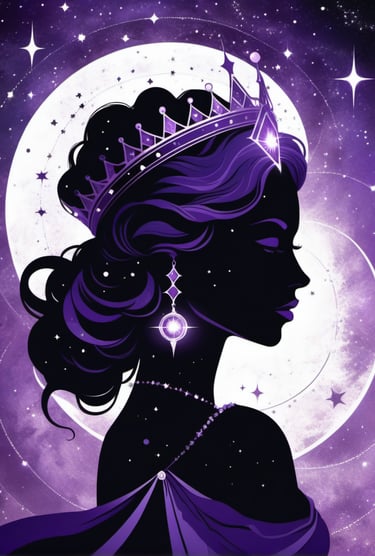

Her myth also asks us to think about the balance between confidence and humility. Vanity, when it blinds us to others, can cause harm – but self-worth, true self-confidence, is the foundation of sharing your light with the world. Cassiopeia teaches us that it’s not wrong to shine, to know your value, as long as it connects rather than divides. Real confidence doesn’t need to compete. It simply shines because it knows its worth. Cassiopeia's story is also about the cost of letting your light be seen. She was punished for her brilliance, her boldness, her refusal to hide. Isn’t that something we all fear? The risk of being judged or dismissed for stepping into who we are? To choose to shine is to choose vulnerability, and that’s not easy. It means facing criticism, maybe even rejection. Sometimes, it feels like you’ve made a terrible mistake just by daring to claim your place.
And yet, it’s those moments of discomfort, those “mistakes,” that often shape us the most. Cassiopeia’s punishment – her endless spinning, her eternal position in the sky – might look like suffering, but what if it’s not? After all, she was placed among the stars, her light eternal. What if her punishment wasn’t really a punishment at all, but showing a path to metamorphosis, to ascension, to enlightenment?
So, how punishing is her punishment? To be forever spinning, forever imperfect, yet forever shining – is this not what it means to be human? Even when we feel unstable, judged, or misunderstood, we are capable of brilliance. Life spins us in strange, unpredictable ways, but it doesn’t stop us from shining. In fact, it’s often the struggles, the so-called flaws, that make our light so uniquely our own. Cassiopeia’s throne may not sit perfectly upright, but her story isn’t about perfection. It’s about resilience, beauty, and the courage to keep shining, no matter what.
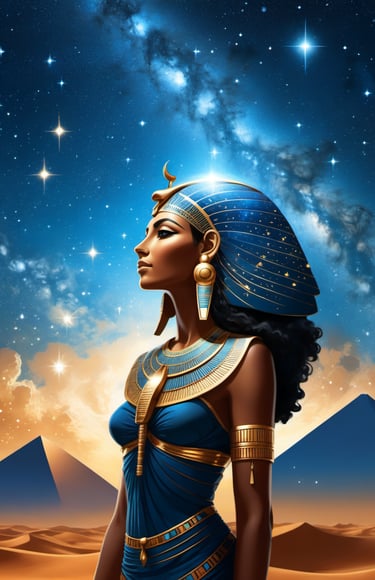

Nut, the sky goddess, stretches her body over the earth, forming a great arch that protects and holds all life beneath her. She is the eternal mother, filling the world with the calm, steady presence of infinite love. Her body is not just the sky we see but the endless space beyond – the vast, cosmic womb where stars are born and possibilities flow endlessly. Nut is the keeper of life’s great mystery, the unseen force that shapes and governs everything. Like a mother’s love, this mystery is limitless, yet she reveals it carefully, only offering us what we are ready to understand. Life is not a puzzle to solve all at once, and that mystery itself is not a barrier but a guide. Mystery is another great expression of the feminine wisdom.
Nut shows us that the unknown is full of potential and doesn’t need to be feared. The darkness of the night sky, her nightly embrace, comes with as much care as with the daylight – it is where rest, renewal, and creation begin. She reminds us that even when life feels chaotic or unclear, something larger is at work. When we feel lost or overwhelmed, Nut whispers that the path will reveal itself in time, but only as much as we are ready to see. This isn’t withholding – it’s a loving patience, like a mother allowing her child to explore the world at their own pace, knowing that growth comes slowly and in stages.
For centuries, Nut’s true nature has been misunderstood or overlooked. Though she stretches across the heavens, embodying the vastness of the universe, her mythology has remained in the shadows, her presence quieter than other deities. Yet this, too, was part of her mystery. Nut’s wisdom unfolds in its own time, and her relative obscurity was no accident. It was a necessary part of her nature, a reflection of the way she works – revealing only what we are ready to understand. Now, as the pace of life quickens and humanity seeks deeper meaning, we are being drawn to her more strongly. Her mysteries are turning faster, her presence becoming clearer, as though she knows we are finally ready to see her more fully.
Life isn’t about controlling or understanding everything. Nut reminds us that the beauty of existence lies in its unfolding, in the gradual discovery of what was hidden. If all mysteries were revealed at once, the process of living would lose its depth and meaning. She teaches us that the unknown is not a problem to solve but a space to grow into. Her mysteries expand as we do, and she reveals them at the perfect time – not too soon, not too late. But for this to work, we must allow ourselves to be open, to trust the rhythm of life instead of resisting it. Nut doesn’t force her revelations. She waits for us to be ready, offering us the comfort of knowing that everything will come in its proper time.
Nut helps us see that every ending and beginning, every transition, is part of her great rhythm. She holds the balance between what we know and what we don’t, teaching us to stop fearing uncertainty and to lean into it instead. Her mysteries aren’t meant to overwhelm us but to inspire us, to help us grow into the people we are meant to be. Her infinite expanse is like a mother’s love – patient, steady, and unconditional. She reminds us that even when we cannot see the way forward, we are held and guided. Nut is the unfolding of life itself, a perfect harmony of timing and mystery, where everything is revealed exactly when it is meant to be.
Cassiopeia, the queen whose name is written in the stars, is often remembered for her so-called flaw: her vanity. She claimed to be more beautiful than the sea nymphs and, for this, was punished – tied to her throne and placed in the sky, forever spinning. Her story is often told as a warning against arrogance, but is that all there is to her myth? Or can we find deeper meaning in her place among the stars?
Up in the northern sky, Cassiopeia’s throne looks unstable, tilted at impossible angles. Yet she remains. She reminds us that no one is defined by a single action, a single mistake, or by the judgments of others. Her light still shines, a symbol of resilience and endurance. One moment, one choice, one flaw doesn’t define the sum of who we are. Cassiopeia’s punishment was to be judged, labeled, cast out – but even so, she shines, her beauty and presence undeniable.
